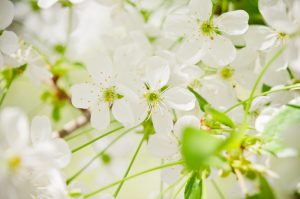Resources to help celebrate Mental Health Awareness Week 2021
Margot Michaud In the United Kingdom, Mental Health Awareness Week is held in May, in 2021 it will run from 10th to 16th. Hosted by the Mental Health Foundation, this event aims to raise awareness around mental health, provide support and guidance, and encourage us to spread the message of good mental health for everyone.
In the United Kingdom, Mental Health Awareness Week is held in May, in 2021 it will run from 10th to 16th. Hosted by the Mental Health Foundation, this event aims to raise awareness around mental health, provide support and guidance, and encourage us to spread the message of good mental health for everyone.
Never has it been more important to raise awareness and promote our conversations about well-being. The theme chosen to mark this year’s Mental Health Awareness Week is ‘Nature and the Environment. A long-term study conducted by the Mental Health Foundation highlighted that walking has been one of the top coping strategies during the pandemic. Indeed, 45% of people surveyed reported that being in green spaces has been vital for their mental health. The benefits of being close to nature are also known to be an effective way of benefiting both your mental and physical well-being.
Spending time in green space or bringing nature into your daily routine can benefit both your mental and physical wellbeing. We have collated some articles and educational resources that can be used to help promote the positive effects of nature and can help support you, your colleagues, and your students’ well-being academically, socially, and physically.
How nature can benefit your mental health
1 – For yourself and your colleagues
5 ways to well-being. Research carried out by the New Economics Foundation found that there are five ways to well-being. The ‘5 Ways to Wellbeing’ are a set of pillars that are key to improving our mental health around themes of social connectedness, physical activity, awareness, learning, and giving. To learn more about it you can:
- Watch this YouTube video playlist here
- Download a 5 ways to wellbeing poster and each of the 5 ways to wellbeing cards here.
The ‘Nature and Mental Health’ guide produced by the charity MIND in 2018 explains the mental health benefits of nature and gives tips and ideas to try, and also provides information on formal ecotherapy programmes.
The Human-Nature Relationship and Health. The research paper on ‘Human-Nature Relationship and Its Impact On Health: A Critical Review’ published by Valentine Seymour explores how nature can impact people’s
Understand the positive effects of nature on well-being. A 30-day campaign was run by the Wildlife Trusts of the University of Derby around the crucial role of nature. The study revealed that subjective feelings of happiness and wellbeing were positively correlated with natural activities such as gardening, animal feeding, bird watching, and bushwalking (Richardson, Cormack, McRobert, & Underhill, 2016).
2 – For your students
Promote the message of good mental health across school settings and communities. As outlined by education publisher Twinkl, we’ve seen just how important nature is during the last year especially. Being able to go for walks and enjoy the beauties of nature during a time of stress and anxiety has alleviated many people’s lives during the lockdown. To help raise awareness of mental health, Twinkl has compiled a list of useful resources. You can read more about it here.
Reading Well Mental Health Awareness Week Library 2021 Toolkit. Reading Well has been supporting young people reading skills and mental health by recommending books. The books are selected by health experts and accessible to readers of all ages. To mark this year Mental Health Awareness Week, they have pulled together a toolkit containing:
- Key facts around Mental Health Awareness Week, mental health, and wellbeing in general.
- Ideas to support libraries to deliver activities and campaigns around mental health, wellbeing, nature, and the environment.
- Information on The Reading Agency’s Read, Talk, Share campaign
Explores the relationship between nature, wellbeing, and mental health. Thriving With Nature’ is a free guide produced by both the Mental Health Foundation and WWF created to show that spending time outdoors can help support good mental health and wellbeing. You can learn more about it here.
Nature Photography Celebration. Taking photographs in nature can have numerous health benefits. To celebrate Mental Health Awareness Week, the mental health charity MIND is inviting nature lovers to share their best shot by emailing communications@BLGmind.org.uk or post them on Twitter, Facebook, or Instagram, tagging @BLGMind and including the hashtag #BLGMindMHAW.
Continuing Professional Development
Join our 12 May or 14 July cohorts – CPD Programme
- 12 May Start – Registration close 5 May (credit/debit card)
- 14 July Start – Bookings open 6 May – Registration close by 30 June (pay later) and 7 July (credit/debit card ).
The following courses may be of interest to SENCo’s, teachers, teaching assistants, and support tutors in order to ensure progress and support pupils in a classroom setting. The CPD courses are delivered entirely online and do not require access to a student or a learner. Our units focus on nurturing the development of learners within the classroom/learning environment both with and without specific learning difficulties. You will be given tutor support through forums on Moodle, our virtual learning environment.
A selection of related courses
The Emotionally Connected Classroom (RT00001)
The Emotionally Connected Classroom (RT00001) – This short level 5 unit aims to provide an understanding of the impact of emotions on the thinking brain and its implications for learning. It aims to give an introduction to key elements of current research and practice in mentalisation theory (understanding the mental state of oneself and others) and emotional coaching. The importance of connectedness and relationships. Please note this unit is taking place in July only.
Dyslexia and Co-occurring Difficulties (DACPD51)
DACPD51 – This short co-occurring level 4 unit course provides an introduction to key elements of current research and practice in dyslexia, and conditions that commonly co-occur with it. It aims to provide an understanding of current theories of dyslexia and the impact that dyslexia and co-occurring difficulties have on performance in a range of settings.
Structured, Cumulative Multisensory Tuition for Learners with Dyslexia (DACPD53)
DACPD53– This level 4 unit introduces the practitioner to the concepts of structured, cumulative, multisensory learning. The links between attention, memory, and multisensory input are explained, and the need for structured, explicit intervention is examined. Completion of the Unit will enable the practitioner to design lessons that maximize learning potential.
Developing Literacy Skills with Assistive Technology (DACPD96)
DACPD96 – Level 5 unit in Developing Literacy Skills with Assistive Technology provides resources that support the development of literacy skills through the use of assistive technology in learning environments and in the workplace. It will introduce approaches utilizing assistive technology that can enable individuals with dyslexia and diverse needs to overcome barriers that add pressure to literacy, planning, and organizational tasks. It will show how assistive technology enables individuals to complete literacy tasks successfully with a focus on cultivating learner autonomy. The emphasis of this unit is on critical evaluation of relevant teaching strategies and creating individual assistive technology ‘toolkits’ to support a range of needs.
Developing Numeracy Skills in Learners with Dyslexia and Dyscalculia (DACPD99)
DACPD99– This level 4 short course unit examines the processes involved in mathematical thinking and how they link to aspects of memory and attention. The difficulties that learners with dyslexia and co-occurring difficulties, particularly dyscalculia, can have with numeracy are explained. The association of ‘number sense’ (numerosity) with dyscalculia is also examined. The unit explores the theory, offers some practical ideas, and provides the practitioner with the fresh perspective necessary to effectively use structured, cumulative, multi-sensory teaching to promote numeracy development in learners where it is stalled or significantly delayed.
Learn more about our courses during Mental Health Awareness Week 2021
If you would like to know more about our online training or would like some training advice in general please email us or call us on +44 (0) 1784-222304 to discuss suitable training opportunities.



